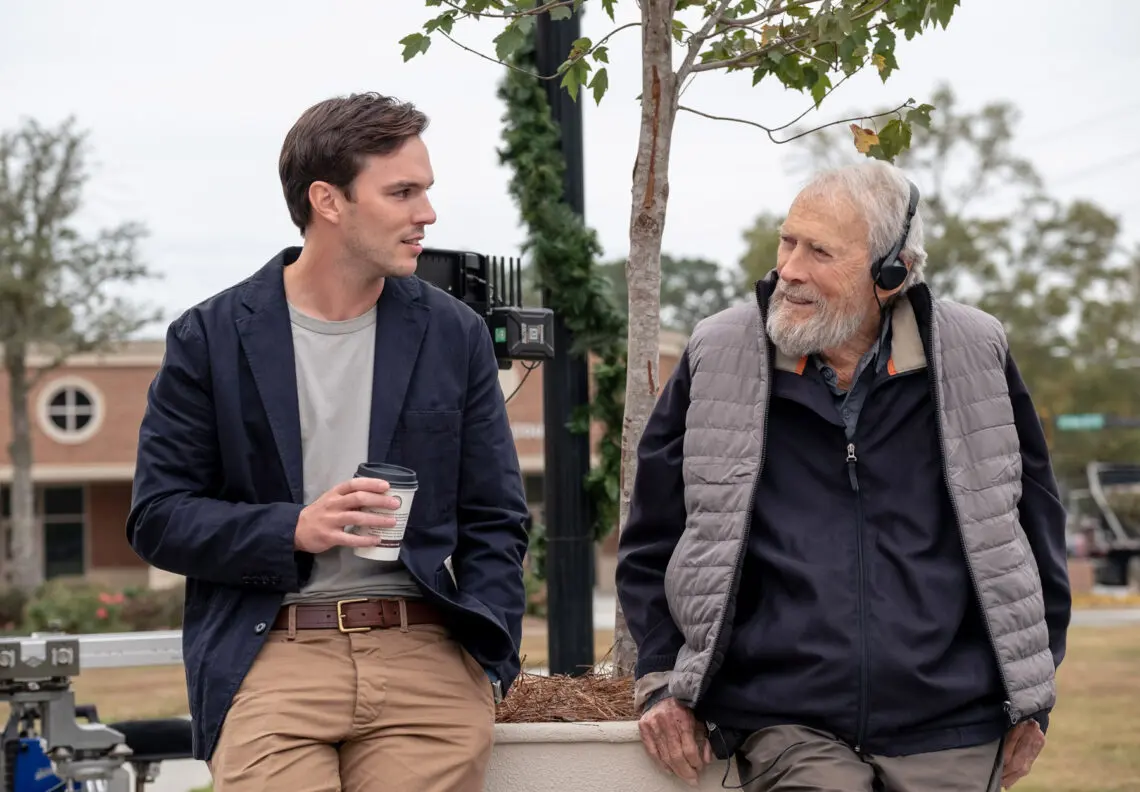Clint Eastwood’s “Juror No. 2”: A Legendary Career Facing Modern Cinema Challenges
The legacy of Clint Eastwood
Imagine the Warner Bros. logo as a badge, and Clint Eastwood as the steadfast figure behind it, much like his iconic Harry Callahan. Such imagery befits Eastwood, a symbol of unwavering determination. But why is Warner Bros. seemingly sidelining him with “Juror No. 2,” Eastwood’s 40th and possibly final directorial venture?
A storied partnership
Eastwood, at 94, has become synonymous with Warner Bros., a relationship that began in 1971 with “Dirty Harry.” Over the decades, he directed and starred in some of the studio’s most memorable films, amassing four Oscars and contributing over $4 billion to the box office. His debut directorial project, “Play Misty for Me,” also came under Warner Bros., solidifying his bond with the studio.
Current dilemma: Limited release
Fast forward to today, and “Juror No. 2” has hit theaters, but finding a screening might be a challenge unless you reside in a major city. Warner Bros. has opted for a limited release, reportedly opening the film on just 31 screens across the U.S. This decision is curious considering Eastwood’s monumental influence and bankable success over the years.
Warner Bros.’ conflicting strategies
Some argue that Warner Bros.’ move wasn’t a deliberate slight. Initially, “Juror No. 2” was intended for the studio’s streaming platform, Max. It was only after the film’s selection as the closing night feature at AFI Fest that a November 1st theatrical release was considered. Insiders maintain that the limited theatrical run is an upgrade, not a demotion.
Audience demand and global reception
As of now, the film has expanded slightly to more screens, yet this is minimal for a director of Eastwood’s stature. Despite this, the film was gripping on Imax-scale screens, like at the TCL Chinese Theatre during AFI Fest, showing there’s a clear demand for a broader theatrical experience.
Internationally, “Juror No. 2” has seen a more generous release. Its success in France, earning $3.1 million in the first weekend, highlights the enduring appeal of Eastwood, especially among audiences who have long respected his work.
Eastwood’s evolving recognition
For many years, Americans viewed Eastwood through the lens of his tough-guy persona. Yet his work, such as “A Perfect World,” “Mystic River,” and “Million Dollar Baby,” continues to elevate his standing as a significant filmmaker. Despite recent setbacks, Eastwood remains a beloved figure, evidenced by “Juror No. 2” holding a 92% fresh rating on Rotten Tomatoes.
Looking back: Eastwood and Oscars
When Eastwood began his journey with WB, Oscars were not a priority. His honest admission of indifference towards awards has always been a part of his charm. Yet, in the early 2000s, his perspective shifted. With hits like “Mystic River” and “Million Dollar Baby,” he began to collect prestigious accolades, reshaping his career towards more “respectable” projects aimed at critical acclaim.
Storyboard of impactful films
From the one-two punch of “Flags of Our Fathers” and “Letters From Iwo Jima” to “Gran Torino” and “American Sniper,” Eastwood’s later films often carried significant cultural and social weight. His projects tackled controversial subjects, offered unique perspectives, and explored complex narratives, proving that commercial success and significant filmmaking weren’t mutually exclusive.
Juror No. 2: A modern gamble
“Juror No. 2”, undoubtedly, is another bold move. The courtroom drama presents a morally ambiguous situation where a recovering alcoholic, played by Nicholas Hoult, discovers his involvement in a murder. The film delves into Eastwood’s recurring theme of legal system breakdown and personal accountability. Such narrative elements showcase Eastwood’s mastery in weaving thought-provoking dilemmas that resonate deeply with audiences.
The importance of giving “Juror No. 2” a chance
Eastwood’s enduring effort and the studio’s cautious approach could be seen as reflective of the evolving theatrical landscape. The cost of marketing mid-range movies, like “Juror No. 2,” remains hefty, often pushing them into the streaming domain. However, the overwhelmingly positive reviews suggest that “Juror No. 2” deserves a broader theatrical run, considering Eastwood’s rich legacy and the film’s potential to captivate viewers.
Industry reflection and audience engagement
Regardless of the limited release, Eastwood’s influence and directorial prowess remain unchallenged. His laid-back yet effective approach to filmmaking fosters authentic performances and the organic evolution of scenes, making his films both powerful and relatable. As audiences continue to navigate the changing landscape of film consumption, Eastwood’s work stands as a testament to enduring quality and heartfelt storytelling.
Join the conversation about Clint Eastwood’s impressive legacy and the intriguing release of “Juror No. 2.” Share this article and follow us for more in-depth analyses and cinematic insights.

 Italian
Italian







